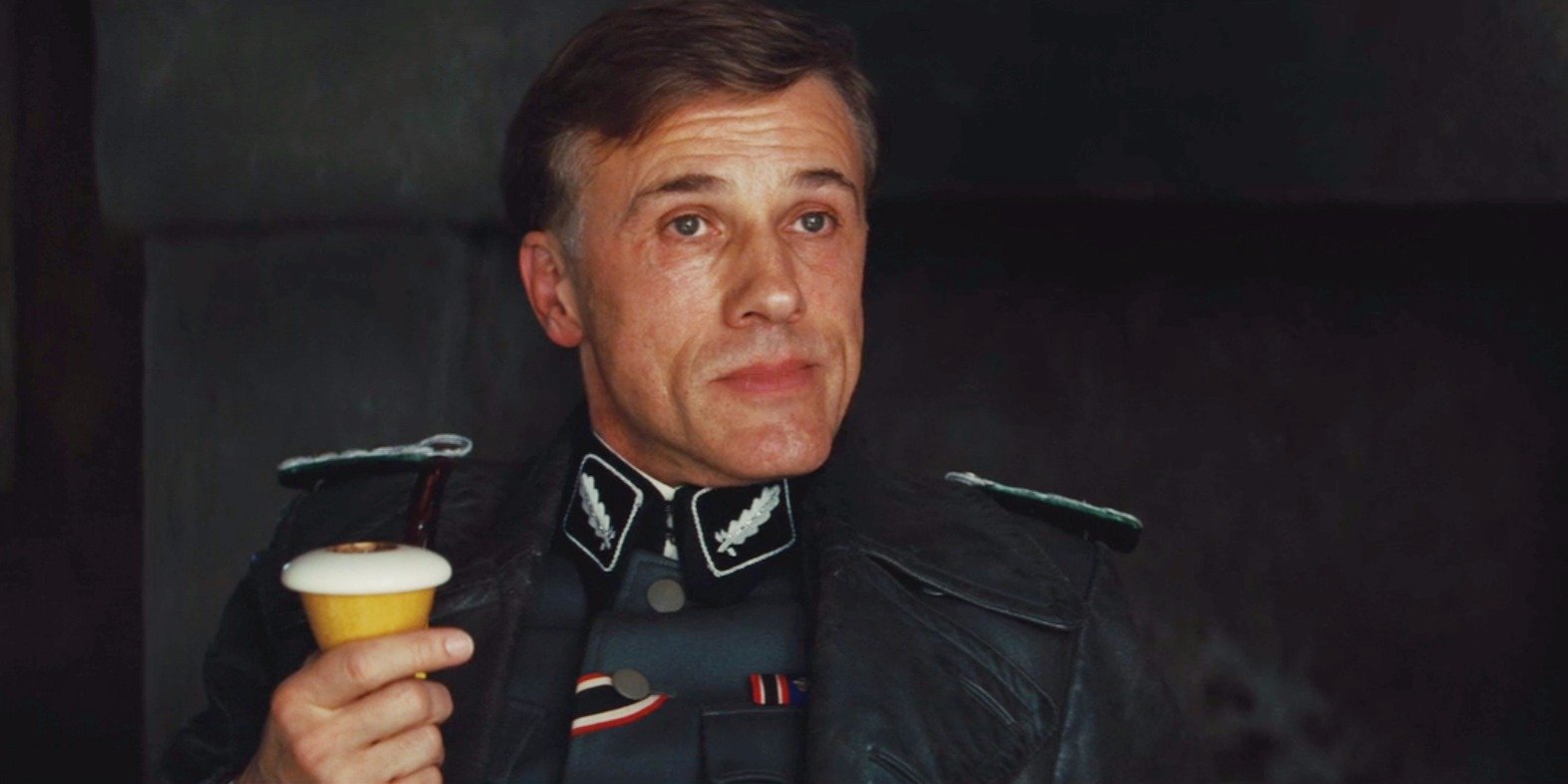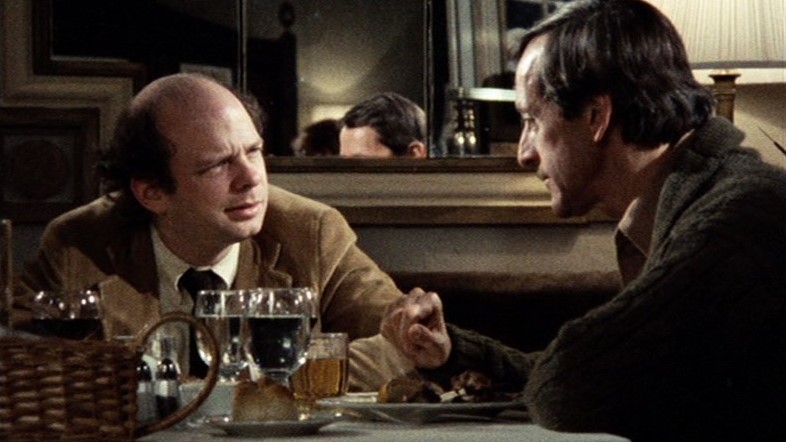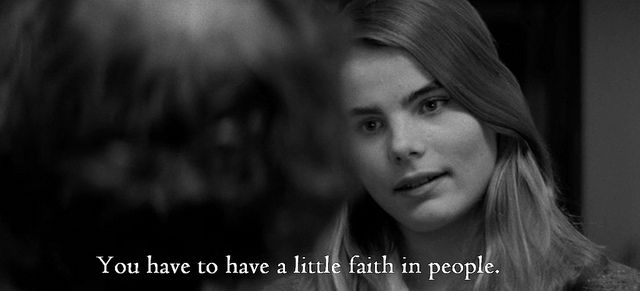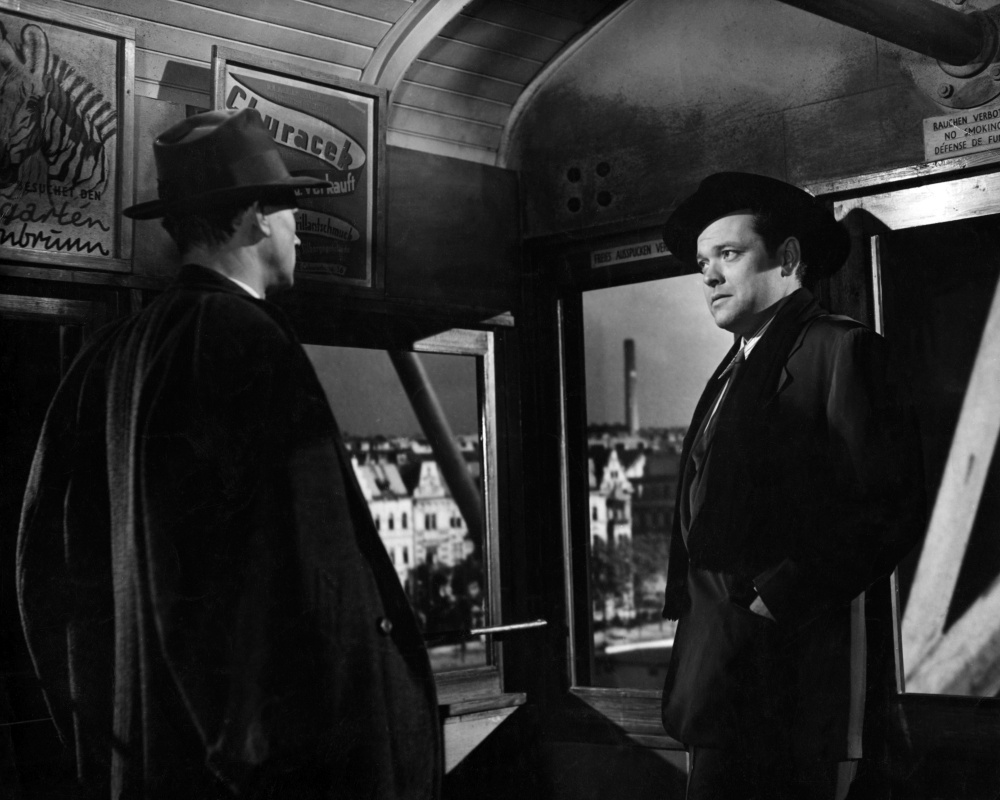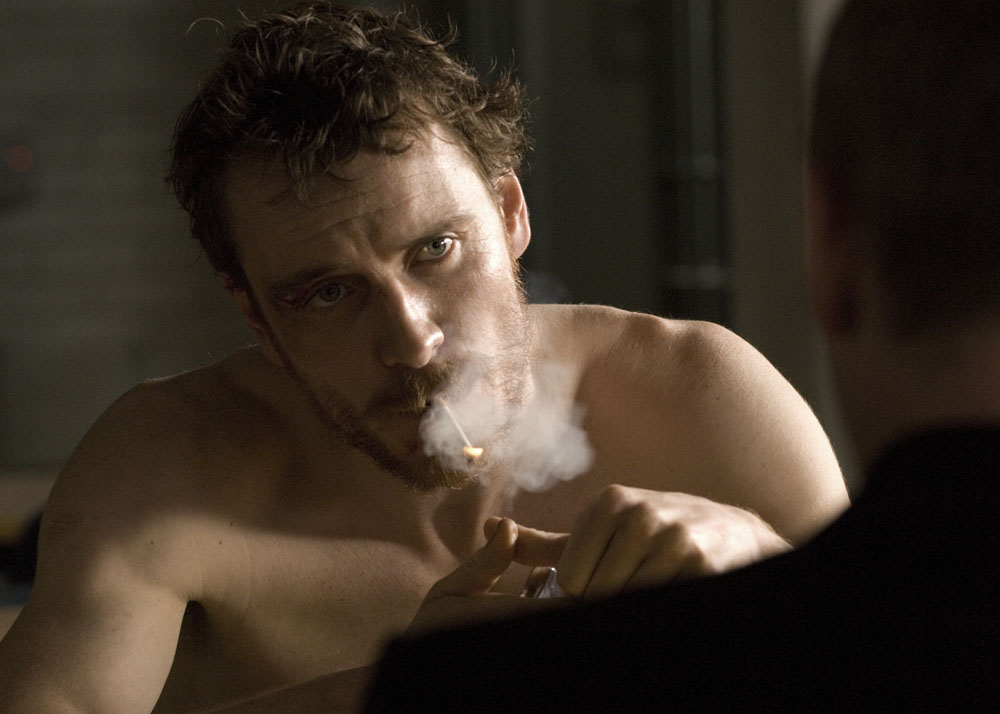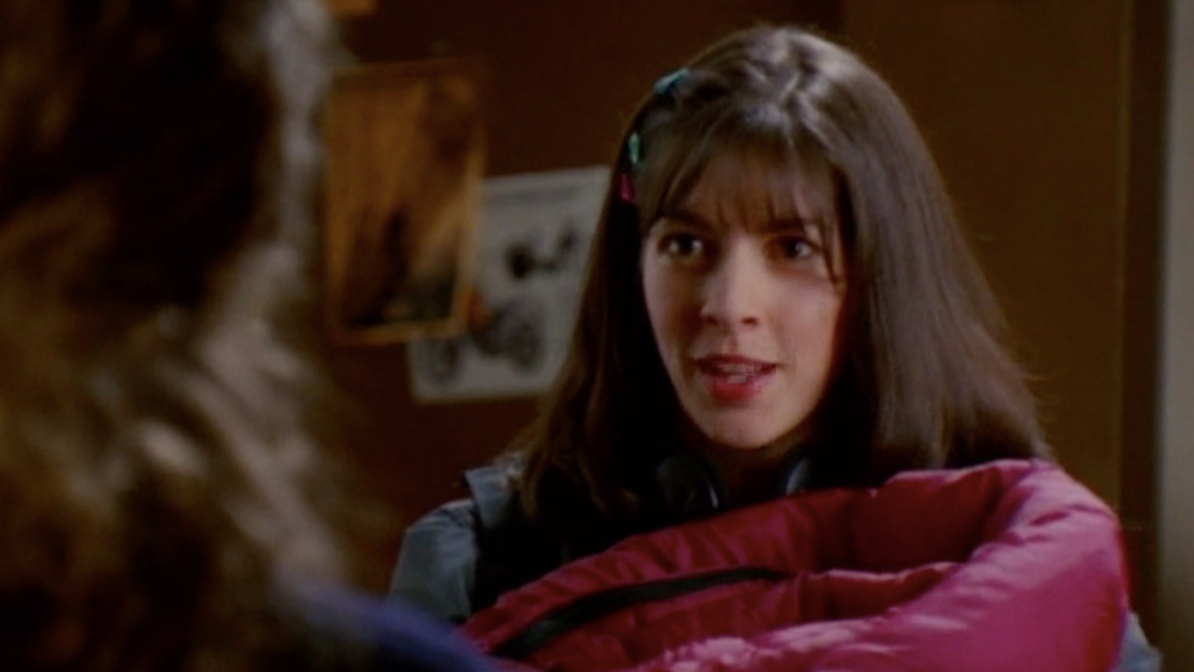Good afternoon fellow writers, editors, teachers and those aspiring into the literary field. It has been a wonderful holiday. I think it took me a few weeks after New Year's just to regroup.
My topic today is the best dialogue you ever read, heard. Please copy & paste them. It can be from anywhere, such as plays and the big screen. I thought of this topic because I think dialogue is so expressive and the way it is said is also important.
It is not on the list, but Princess Bride's "My name is Inigo Montoya, you killed my father, prepare to die."
http://www.tasteofcinema.com/2016/the-20-best-dialogue-scenes-in-cinema-history/
When two people gather in a room to talk things through like adults, what happens in mostly pretty standard; if everything goes right, both individuals shake hands and go back to the world with a smile on their faces and one reason less to worry.
However, in the movie world, when you see a dialogue-heavy scene coming, you know it’s about to go down.
Unlike the real world, two individuals having a conversation can’t just be a friendly encounter (unless you’re watching an indie, low budget or Richard Linklater film); tension has to be present, with plenty of drama and rage. In short, shenanigans are likely to ensue and at the very least, something important will be revealed that may change the course of the plot.
If you decide to continue reading this amazing list, you’ll find the 20 best one-on-one verbal confrontations of recorded film history.
20. My Dinner with Andre
This movie consists of a single scene of dialogue, stretched for over two hours, in which the protagonist reunites with an old friend named Andre, who has been involved in an interesting series of activities in a search for real meaning in his life.
Wally calmly listens as his friend enthusiastically describes what he has been doing all this time: being buried alive, making a weird play with no audience in a forest, adopting a Buddhist monk for a few weeks, joining a group of people who were trying to achieve a kind of enlightened extra-human state. Andre seems to be into new age culture, and he and Wally are very dissimilar.
Watching them talk for almost two hours nonstop is quite interesting. The protagonist disagrees with Andre’s extremism about how the modern world is pointless, but he does appreciate the comforts that technology offers, whereas Andre prefers a more animalistic and natural state of being and savagely critiques the vices and problems of our contemporary civilization.
Their philosophical dissertations show some of the blatant issues Western society has to face, such as alienation, routine, self-deception, lack of empathy. It’s an analysis you shouldn’t miss.
Best lines: Andre: “Our minds are just focused on these goals and plans, which in themselves are not reality.” Wally: “Goals and plans are not… they’re fantasy. They’re part of a dream life.”
19. Manhattan
All Woody Allen films are dialogue driven. His scripts are influenced by a number of literary authors, and most of his texts could be easily adapted into a play. He also borrows often from the Hollywood golden era and classic foreign masterpieces, such as “Casablanca”, “8½”, “Citizen Kane” and “The Seventh Seal”.
“Manhattan” is a mixture of many of his inspirations, including New York, which may be considered his biggest one. Allen plays Isaac, a chatty New Yorker who’s dating a 17-year-old named Tracy. He doesn’t seem to be taking the relationship seriously, but Tracy has fallen in love with him.
Throughout the whole movie, Isaac treats Tracy like a child and is condescending toward her in an attempt to undermine their mutual affection. He prefers the pseudo-intellectual Mary, but it’s clear that he would rather be with Tracy if not for her age.
At the end, Isaac’s attempts to seduce Mary get hampered by his best friend. Isaac runs toward Tracy’s building, realizing that he had always loved her, while the wonderful soundtrack transports us into ancient Hollywood history. Gershwin’s famous “Rhapsody in Blue” carries the whole movie until the end.
She’s getting ready to leave for London on a scholarship, and when he realizes that it’s too late to convince her, Tracy comforts him by saying that when she comes back in six months, she would still love him. Isaac is not so sure about that, but is convinced when Tracy says the famous line: “You have to have a little faith in people.”
This scene nicely ties up the film in a nice bow. Shot in glorious black and white, and with amazing performances from both actors, it’s one of the greatest dialogues in film history.
Best lines: Tracy: “You have to have a little faith in people.”
18. The Third Man
Considered one of the best classic thrillers of all time, this movie’s smart plot was decades ahead of its time, inspiring future generations of filmmakers with its flawless black-and-white aesthetic and memorable scenes; namely the famous dialogue on the Ferris wheel.
Holly Martins has arrived to post-World War II Vienna, following an invitation from his old friend Harry Lime. Just after his arrival, Holly is informed that Harry was run over by a truck and died instantly. He assists with the funeral and everyone seems to think that Harry was a criminal. Holly then starts a difficult investigation process to prove the innocence of his best buddy.
After asking around, the protagonist is convinced that his friend isn’t what he used to be. Everything points at Harry being a cruel racketeer who faked his death, so Holly tells one of Harry’s associates that he’ll be around the Ferris wheel waiting for him to clear things up.
Harry, played by no less than Orson Welles, joins Holly at the meeting spot as though everything were normal. Holly starts talking about all the evidence he has found against him; meanwhile, the Ferris wheel has started spinning, and we see the landscape moving behind Harry. He doesn’t seem to care about any of this and threatens Holly’s life if he were to rat him out. The dialogue itself turns very poetic, as Welles’s character is marvelously written, and he carries the conversation like a master of manipulation, while his friend is perplexed at his change of personality.
This is a key moment for the film, in which Welles solidifies his awesome performance and the mystery is cleared.
Best lines: Harry Lime: “Don’t be so gloomy. After all it’s not that awful. Like the fella says, in Italy for 30 years under the Borgias they had warfare, terror, murder, and bloodshed, but they produced Michelangelo, Leonardo da Vinci, and the Renaissance. In Switzerland they had brotherly love – they had 500 years of democracy and peace, and what did that produce? The cuckoo clock. So long, Holly.”
17. Goodfellas
In an attempt of reprising the role of “himself”, Joe Pesci plays a psycho mobster named Tommy, who’s as crazy as he’s funny, although Pesci’s character is in denial of those aspects of his personality.
Martin Scorsese structures this dialogue scene wonderfully, using two camera setups that allow us to see each character’s reactions.
Tommy is telling a story to a group of other mobsters in a restaurant, about how he refused to be interrogated by cops when they approached him as he was resting in a park. Everyone is laughing due to the actor’s hilarious way of telling the tale and Henry Hill (played by Ray Liotta) instinctively says to Tommy that he’s funny, who replies, “funny how?” Henry doesn’t know how to answer and starts mumbling, so Tommy questions him again with a bit of anger in his voice, as silence takes over the table.
Soon enough, Henry finds out that Tommy is only messing with him and everybody starts laughing again. However, we also see how much of a lunatic Tommy is, which makes us wonder if Henry is safe by his side.
This scene is based on a real experience Joe Pesci had when working on a restaurant. He told a mobster that he was funny and things went downhill from there, as the guy didn’t take the compliment too fondly. The director didn’t add this bit to the filming schedule, only he and Joe knew about it, so the other actors improvised around Pesci’s great performance, and their reactions are real and priceless.
Scorsese portrays the relationship between these two in a single masterful dialogue that, on top of being amusing, establishes the movie’s whole rhythm, which is dynamic and unexpected.
Best lines: Tommy DeVito: “No, no, I don’t know, you said it. How do I know? You said I’m funny. How the fuck am I funny, what the fuck is so funny about me? Tell me, tell me what’s funny!” Henry Hill: [long pause] “Get the fuck out of here, Tommy!” T: [everyone laughs] “Ya motherfucker! I almost had him, I almost had him. Ya stuttering prick ya. Frankie, was he shaking? I wonder about you sometimes, Henry. You may fold under questioning.”
16. Hunger
Steve McQueen cast young Magneto and Davos Seaworth for his first feature film. I was surprised when I didn’t encounter any swordfights or metal bending/murdering in the whole film’s runtime, although I did came across a sweet dialogue scene.
Michael Fassbender plays Bobby Sands, an Irish republican who leads a hunger strike while imprisoned. He has a conversation with Father Dominic about his life, religion and motives, a relaxed chat while smoking and displaying a great amount of chemistry. The camera is static as both men interrogate one another.
Both actors do a great job, as filming a single take from the same angle and with an extreme amount of lines to remember couldn’t have been an easy task. Though we only see their shapes due to the dim lighting for most of the scene, the performers are able to express every emotion and keep us interested for almost 30 minutes and with minimal cuts.
Best lines: Father Dominic Moran: “I want to know whether your intent is just purely to commit suicide here.”
Bobby Sands: “You want me to argue about the morality of what I’m about to do and whether it’s really suicide or not? For one, you’re calling it suicide. I call it murder. And that’s just another wee difference between us two. We’re both Catholic men, both Republicans. But while you were poaching salmon in beautiful Kilrea, we were being burnt out of our house in Rathcoole. Similar in many ways, Dom, but life and experiences focused our beliefs differently. You understand me?”
15. Casablanca
Holding the unbeaten record of the world for “most times the movie’s title is mentioned in its runtime”, “Casablanca” is really the classic of classics. People don’t usually think that is the best movie ever made, but within its historical context, “Casablanca” set the tone for decades of cinema to come.
American Rick Blaine (Humphrey Bogart) and his squeeze Ilsa Lund (Ingrid Bergman) were forced to flee Paris just when their relationship was consolidating, because Hitler just couldn’t go down without committing every crime imaginable, he also had to cockblock Humphrey Bogart. However, Ilsa suddenly decides to ditch him with a letter, which is the equivalent of sending your loved one a Snapchat of you raising your middle finger as a breakup tactic.
They see each other again, after a long time, in Rick’s popular nightclub. He possesses some special visas that Ilsa and her revolutionary husband need in order to escape from the Third Reich persecution and flee to the United States. He’s reluctant to give up those documents, because of the great harm Ilsa caused him; Bogart’s character often states that, after what happened to him, he only cares about himself.
However, in the final scene, Rick makes a huge sacrifice for the greater good. He was planning to give Ilsa’s husband the visa but stay with his former girlfriend in Casablanca, because she claimed she still loved him. At the moment of truth, he gives them both the visas and stays alone, with one of the most memorable lines in the history of film.
